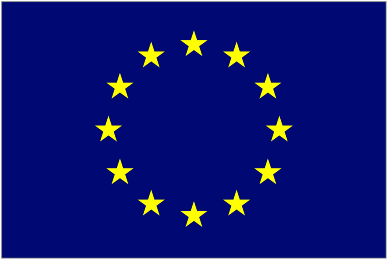
Funded by the European Union
Project 81



About Us
Project 81 was officially launched by DG DEVCO at the regional round table event, held in Jakarta, Indonesia on the 11th December 2019.
A three year project funded by the European Union and delivered on behalf of the European CBRN Centre of Excellence by a consortium of expertise led by Sustainable Criminal Justice Solutions Europe.
The purpose of the project is two fold and all work will be conducted with the partner countries.
Firstly it will provide a set of recommendations for improving biosecurity management system in South-East Asia addressing: biosecurity awareness, legislation and guidelines, enforcement, high-risk biological materials and facilities, microbial forensics, physical and information security framework for facilities (taking into account emerging technologies) and information exchange.
Secondly, it will provide effective tools to enhance capabilities to respond to highly communicable diseases or global catastrophic biological events, such as pandemics.
There are seven results expected and these can be summarised as follows.
1. Increased awareness on biosecurity and biosecurity risk management, cross-cutting biological risks (zoonotic disease risks/pests) and dual-use high-risk biological materials, related research and technology (bioterrorism, agro-terrorism, possible malevolent use of embryonic technology and/or synthetic biology products, for example) for all relevant stakeholders; improved inter-sectorial exchange and coordination with the development of response plans and procedures to handle high-risk biological materials and related biological hazards.
2. Analyse legislation and guidelines related to high-risk biological materials (including their acquisition, use, storage, transfer as per import/export/transit/trans-shipment and transport), dual-use research and technologies against international obligations and instruments (e.g. BTWC; IHR; UNSCR 1540; EU CBRN CoE NAP) in order to detect potential gaps and suggest adaptations or development of missing legislation and/or guidelines;
3. Stronger and more effective border control (in line with all existing trade/export agreements entered to by ASEAN countries) for detecting biological threats agents and improved regulatory controls covering the acquisition, use, storage and transfer (import/export/trans-shipment) of high-risk biological materials, including capacity-building/updating on current best practices/principles/strategies in CBRN materials storage, monitoring and transport; Trained experts who will continue to conduct training in their countries and also in partner countries as needed, to ensure sustainability of the initiative;
4. Improved biological material control and accountability at high-risk biological laboratories, including strengthened physical, procedural (including personnel vetting), information security, as well as appropriate training (BSL3 facility guideline);
5. Improved lab-based capacity not only to detect but also to identify type and source of disease-causing agents (microbial forensics), including trained trainers and training modules to ensure sustainability of the capacity within the partner countries and the region;
6. Enhanced security framework mechanisms for ensuring physical security and information security related to high-risk biological material facilities for human, animal and plant health, including means of transport and waste transport, treatment and disposal and taking into account threats from emerging technologies;
7. Establishment of a workable framework for secure information exchange about biosecurity threats for human, animal and plant health between practitioners in the biosecurity area and law enforcement and intelligence services.